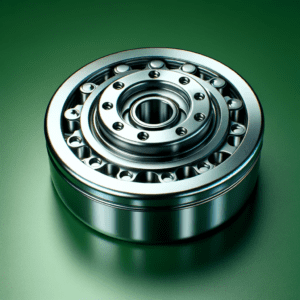Chemical nickel plating in the automotive industry is a coating process that involves applying a layer of nickel to various components to improve their performance and durability. This technique is particularly valued for its ability to provide uniform coverage, corrosion resistance, and increased hardness of treated materials. In the automotive context, chemical nickel plating is essential for components exposed to mechanical stress, thermal variations and corrosive agents.

Table of Contents
ToggleThe Actors Involved
Automobile companies, automotive component suppliers and specialized surface treatment centers are the main players involved in chemical nickel plating in the automotive industry. These parties work closely together to ensure that the components handled meet the quality and safety standards required by the industry.
Applications in Automotive Chemical Nickel Plating
Chemical nickel plating finds use in various parts of the car or other vehicles:
- Engine Components: Valves, injectors, and pistons are often nickel-plated to resist high temperatures and corrosion.
- Transmission Systems: Gears and bearings require anti-friction and anti-corrosion treatment, made possible by chemical nickel plating.
- Exterior Elements: Parts such as handles, grilles, and decorative components benefit from corrosion resistance and improved aesthetics through nickel plating.
Timing in the Production Process
Chemical nickel plating is usually applied in the final stages of the production process of components, immediately after their manufacture and before their assembly into the vehicle. This timing is crucial to protect components before they are exposed to operating conditions.
The Benefits of Chemical Nickel Plating
Chemical nickel plating is chosen in the automotive industry for several reasons:
- Corrosion Protection: Critical to the longevity of components exposed to moisture and chemicals.
- Wear Resistance: Essential for parts subject to friction and mechanical stress.
- Uniformity of Coating: Provides protection even in hard-to-reach areas.
- Aesthetics: Provides a smooth and glossy finish, enhancing the appearance of decorative components.
In conclusion, chemical nickel plating in the automotive industry is a crucial refining process that ensures performance, durability, and aesthetic quality. Its cross-use in various vehicle components testifies to the importance of this treatment in modern manufacturing, emphasizing the relentless pursuit of innovative solutions to meet the growing needs of the industry. Deepen with High Quality Chemical Nickel Plating

